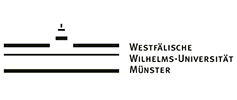The Indonesian Constitutional Court and the Democratic Institutions in Judicial Review
DOI:
https://doi.org/10.31078/consrev323Keywords:
Constitutional Court, Democratic Institutions, Judicial ReviewAbstract
This paper focuses on the relationship between the Indonesian Constitutional Court, the legislature, and the executive in judicial review. It aims to explain the Court strategies in deciding judicial review cases related to the right to work in relation with the executive and the legislature. It appears that while constitutionally the Court is granted with a strong form of judicial review (as reflected in the finality of its decisions), it also employed other approaches in deciding cases related to the right to work. These approaches include the declaration of incompatibility, conditional decision, and the invalidation of a statute in its entirety. This paper argues that Katharine G. Young’s typology of judicial review is quite helpful as an interpretive tool to understand the Court approaches when it decided cases related the right to work. The use of various approaches by the Court affected the relationship between the Court, the executive, and the legislature. This is because the executive and the legislature are the implementing agencies of the Court rulings.References
Bickel, Alexander. The Least Dangerous Branch: The Supreme Court at the Bar of Politic. London: Yale University Press, 1986.
Epstein, Lee, and Tracey George. "On the Nature of Supreme Court Decision Making." The American Political Science Review 86, no. 2 (1992): 323–37.
Hamilton, Alexander. "The Federalist Papers : No. 78." The Judiciary Department From McLEAN’S Edition. Accessed October 31, 2017. http://avalon.law.yale.edu/18th_century/fed78.asp.
Indonesian Law Number 39 of 2004 on the Placement and Protection of the Indonesian Migrant Workers (2004).
Judicial Review Number 13 of 2003 on Manpower, No. 012/PUU-I/2003 (The Constitutional Court of the Republic of Indonesia 2003).
Judicial Review Number 13 of 2003 on Manpower, No. 028–029/PUU–IV/2006 (the Constitutional Court of the Republic of Indonesia 2006).
Judicial Review Number 13 of 2003 on Manpower, No. 58/PUU-IX/2011 (the Constitutional Court of the Republic of Indonesia 2011).
Judicial Review Number 13 of 2003 on Manpower against the 1945 Constitution, No. 67/PUU-XI/2013 (The Constitutional Court of the Republic of Indonesia 2003).
Judicial Review Number 13 of 2003 on Manpower against the 1945 Constitution, No. 001/PUU-I/2003 (The Constitutional Court of the Republic of Indonesia 2003).
Judicial Review Number 13 of 2003 on Manpower against the 1945 Constitution, No. 021/PUU-I/2003 (The Constitutional Court of the Republic of Indonesia 2003).
Judicial Review Number 13 of 2003 on Manpower against the 1945 Constitution, No. 022/PUU-1/2003 (The Constitutional Court of the Republic of Indonesia 2003).
Judicial Review Number 13 of 2003 on Manpower against the 1945 Constitution of the Republic of Indonesia, No. 100/PUU-X/2012 (the Constitutional Court of the Republic of Indonesia 2011).
Judicial Review Number 39 of 2004 on Placement and Protection of the Indonesian Migrant Workers, No. 019–020/PUU–III/2005 (The Constitutional Court of the Republic of Indonesia 2005).
Judicial Review Number 39 of 2004 on Placement and Protection of the Indonesian Migrant Workers against the 1945 Constitution, No. 028–029/PUU–IV/2006 (The Constitutional Court of the Republic of Indonesia 2006).
Leiter, Brian. "Legal Formalism and Legal Realism: What Is the Issue?" University of Chicago Public Law & Legal Theory Working Paper 320 (2010). http://chicagounbound.uchicago.edu/cgi/viewcontent.cgi?article=1178&context=public_law_and_legal_theory.
Pacelle Jr, Richard, Brett Curry, and Marshall. Decision Making by the Modern Supreme Court. Cambridge: Cambridge University Press, 2011.
Siahaan, Maruarar. Undang-Undang Dasar 1945: Konstitusi Yang Hidup. Jakarta: Sekretariat Jenderal dan Kepaniteraan MKRI, 2008.
The 1945 Constitution of the Republic of Indonesia (1945).
The Constitutional Court of the Republic of Indonesia. "Catatan Hakim Konstitusi Soedarsono: Putusan Mahkamah Konstitusi Tanpa Mufakat Bulat." Sekretariat Jenderal dan Kepaniteraan MKRI, 2008.
———. "Ikhtisar Putusan Mahkamah Konstitusi 2003-2008." Sekretariat Jenderal dan Kepaniteraan MKRI, 2008.
———. "Konstitusi Sebagai Rumah Bangsa: Pemikiran Hukum Dr. Harjono, S.H., M.C.L. Wakil Ketua MK." Sekretariat Jenderal dan Kepaniteraan MKRI, 2008.
———. "Menegakkan Tiang Konstitusi: Memoir Lima Tahun Kepemimpinan Prof. Dr. Jimly Asshiddiqie, S.H.,Di Mahkamah Konstitusi." Sekretariat Jenderal dan Kepaniteraan MKRI, 2008.
———. "Sang Penggembala: Perjalanan Hidup Dan Pemikiran Hukum A. Mukthie Fadjar (Hakim Konstitusi Periode 2003-2008),." Sekretariat Jenderal dan Kepaniteraan MKRI, 2008.
Tushnet, Mark. "New Forms of Judicial Review and the Persistence of Rights-and Democracy-Based Worries." Wake Forest Law Review 38 (2003).
Tushnet, Mark, and Rosalind Dixon. "Weak Form Review and Its Constitutional Relatives: An Asian Perspective in Rosalind Dixon and Tim Ginsburg." In Comparative Constitutional Law in Asia. Massachusetts: Edward Elgar Publishing, 2014.
Young, Katharine. "A Typology of Economic and Social Rights Adjudication: Exploring the Catalytic Function of Judicial Review." International Journal of Constitutional Law 8, no. 3 (2010): 385–420.
———. Constituting Economic and Social Rights. Oxford University Press: Oxford University Press, 2012.
Epstein, Lee, and Tracey George. "On the Nature of Supreme Court Decision Making." The American Political Science Review 86, no. 2 (1992): 323–37.
Hamilton, Alexander. "The Federalist Papers : No. 78." The Judiciary Department From McLEAN’S Edition. Accessed October 31, 2017. http://avalon.law.yale.edu/18th_century/fed78.asp.
Indonesian Law Number 39 of 2004 on the Placement and Protection of the Indonesian Migrant Workers (2004).
Judicial Review Number 13 of 2003 on Manpower, No. 012/PUU-I/2003 (The Constitutional Court of the Republic of Indonesia 2003).
Judicial Review Number 13 of 2003 on Manpower, No. 028–029/PUU–IV/2006 (the Constitutional Court of the Republic of Indonesia 2006).
Judicial Review Number 13 of 2003 on Manpower, No. 58/PUU-IX/2011 (the Constitutional Court of the Republic of Indonesia 2011).
Judicial Review Number 13 of 2003 on Manpower against the 1945 Constitution, No. 67/PUU-XI/2013 (The Constitutional Court of the Republic of Indonesia 2003).
Judicial Review Number 13 of 2003 on Manpower against the 1945 Constitution, No. 001/PUU-I/2003 (The Constitutional Court of the Republic of Indonesia 2003).
Judicial Review Number 13 of 2003 on Manpower against the 1945 Constitution, No. 021/PUU-I/2003 (The Constitutional Court of the Republic of Indonesia 2003).
Judicial Review Number 13 of 2003 on Manpower against the 1945 Constitution, No. 022/PUU-1/2003 (The Constitutional Court of the Republic of Indonesia 2003).
Judicial Review Number 13 of 2003 on Manpower against the 1945 Constitution of the Republic of Indonesia, No. 100/PUU-X/2012 (the Constitutional Court of the Republic of Indonesia 2011).
Judicial Review Number 39 of 2004 on Placement and Protection of the Indonesian Migrant Workers, No. 019–020/PUU–III/2005 (The Constitutional Court of the Republic of Indonesia 2005).
Judicial Review Number 39 of 2004 on Placement and Protection of the Indonesian Migrant Workers against the 1945 Constitution, No. 028–029/PUU–IV/2006 (The Constitutional Court of the Republic of Indonesia 2006).
Leiter, Brian. "Legal Formalism and Legal Realism: What Is the Issue?" University of Chicago Public Law & Legal Theory Working Paper 320 (2010). http://chicagounbound.uchicago.edu/cgi/viewcontent.cgi?article=1178&context=public_law_and_legal_theory.
Pacelle Jr, Richard, Brett Curry, and Marshall. Decision Making by the Modern Supreme Court. Cambridge: Cambridge University Press, 2011.
Siahaan, Maruarar. Undang-Undang Dasar 1945: Konstitusi Yang Hidup. Jakarta: Sekretariat Jenderal dan Kepaniteraan MKRI, 2008.
The 1945 Constitution of the Republic of Indonesia (1945).
The Constitutional Court of the Republic of Indonesia. "Catatan Hakim Konstitusi Soedarsono: Putusan Mahkamah Konstitusi Tanpa Mufakat Bulat." Sekretariat Jenderal dan Kepaniteraan MKRI, 2008.
———. "Ikhtisar Putusan Mahkamah Konstitusi 2003-2008." Sekretariat Jenderal dan Kepaniteraan MKRI, 2008.
———. "Konstitusi Sebagai Rumah Bangsa: Pemikiran Hukum Dr. Harjono, S.H., M.C.L. Wakil Ketua MK." Sekretariat Jenderal dan Kepaniteraan MKRI, 2008.
———. "Menegakkan Tiang Konstitusi: Memoir Lima Tahun Kepemimpinan Prof. Dr. Jimly Asshiddiqie, S.H.,Di Mahkamah Konstitusi." Sekretariat Jenderal dan Kepaniteraan MKRI, 2008.
———. "Sang Penggembala: Perjalanan Hidup Dan Pemikiran Hukum A. Mukthie Fadjar (Hakim Konstitusi Periode 2003-2008),." Sekretariat Jenderal dan Kepaniteraan MKRI, 2008.
Tushnet, Mark. "New Forms of Judicial Review and the Persistence of Rights-and Democracy-Based Worries." Wake Forest Law Review 38 (2003).
Tushnet, Mark, and Rosalind Dixon. "Weak Form Review and Its Constitutional Relatives: An Asian Perspective in Rosalind Dixon and Tim Ginsburg." In Comparative Constitutional Law in Asia. Massachusetts: Edward Elgar Publishing, 2014.
Young, Katharine. "A Typology of Economic and Social Rights Adjudication: Exploring the Catalytic Function of Judicial Review." International Journal of Constitutional Law 8, no. 3 (2010): 385–420.
———. Constituting Economic and Social Rights. Oxford University Press: Oxford University Press, 2012.
Downloads
Published
2018-08-21
How to Cite
Omara, A. (2018). The Indonesian Constitutional Court and the Democratic Institutions in Judicial Review. Constitutional Review, 3(2), 189–207. https://doi.org/10.31078/consrev323
Issue
Section
Articles
































































